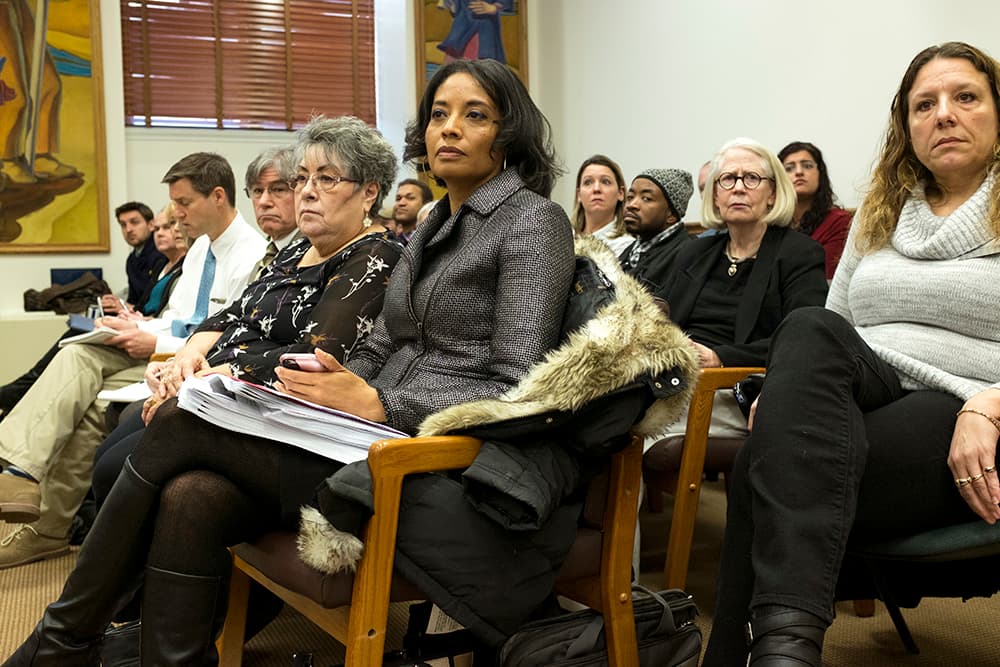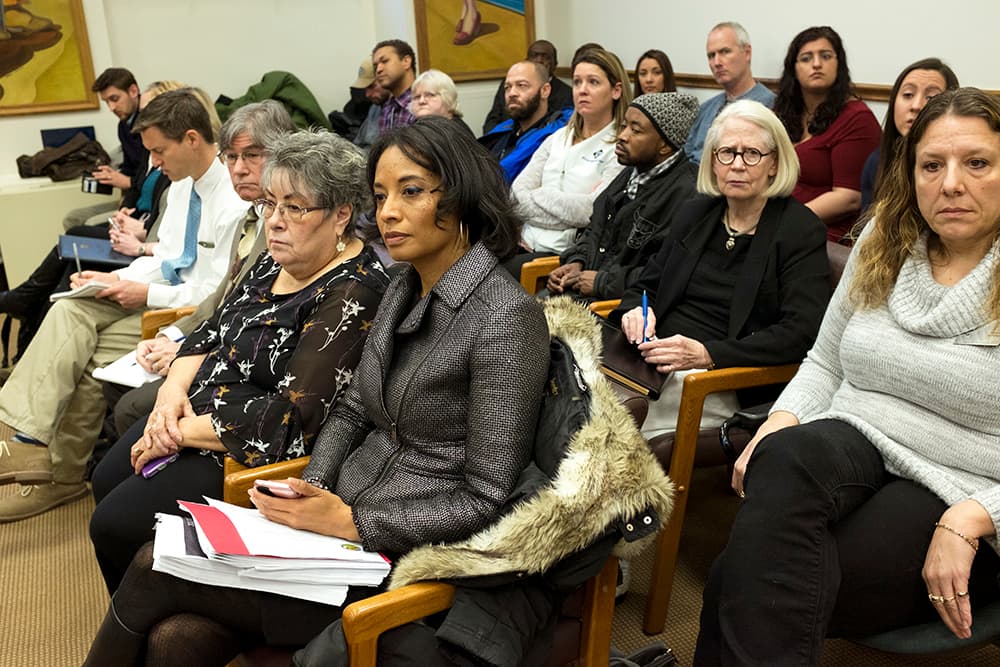
Update: The Denver City Council approved the new contract in a 10-2 vote on March 19.
For close to a decade, the Community Reentry Project has helped people rebuild their lives after they left Denver's jail system. On Dec. 31, the city-funded group closed its doors -- and it hasn't reopened yet.
"They kicked us out of our offices. They required us to shut it down. We had to shut down our entire 10 years' worth of programming," said Lisa Calderón, its long-time executive director.
CRP had lost its contract with the local government, and city officials haven't yet chosen a new group to run the program. Calderón believes that the program is the victim of "political retribution" because she has publicly criticized Mayor Michael Hancock.
Hancock's office rejected the claim, saying that the proposed change is part of a standard public bidding process to ensure the city is spending its money wisely, and city staff said other services had picked up the slack.
The controversy drew pointed criticism and questions Wednesday from Denver City Council members. In a 5-1 vote, the safety and housing committee voted to delay a proposal that would give the program's $550,000 contract to a new group.
The story so far:
Calderón has been involved with CRP since its creation in 2007, she said. She wasn't a city employee, but the city government paid the salary for her team of seven.
In recent years, the city renewed her group's contract with little trouble. In 2016, though, city staff decided that they wanted to open a competitive bidding process, according to Julie Smith, spokeswoman for the Department of Human Services.
Calderón believes the change was set in motion because she has criticized Hancock in her role with a separate nonprofit, the Colorado Latino Forum. (For example, she said last year that city officials weren't doing enough to engage the community amid police reforms.)
"I spoke out in my role as the Colorado Latino Forum chair, and then, shortly thereafter … they canceled my contract," she said in an interview before speaking to council members on Wednesday morning.
Patricia Bangert, a civil rights lawyer representing Calderón, said that the change impinged on Calderón's rights. "It was the exercise of freedom of speech," she said.
The administration's explanation:
City staff said that Calderón's contract was simply due for a review.
An executive order dating to 2011 requires contracts to go through a "competitive selection process every 3 to 5 years." The City Attorney's Office flagged the contract in 2016 and the public bid process began in 2017, Smith said.
"It is no secret that members of the CLF have been open critics of the administration but, frankly, that comes with the territory of being Mayor," wrote Amber Miller, a spokeswoman for Hancock, in an email to Denverite.
"The competitive contracting process is something this city takes very seriously and politics has no place in securing the best program operators for the people of Denver. We are disappointed to hear Ms. Calderón continues to try to impact the process by making these claims."
The selection process included a report by an independent contractor based on surveys and meetings, Smith said. (The contractor was Joining Vision and Action.)
It was run by the city's Office of Behavioral Health Strategies, and the final recommendation was approved by the mayor-appointed Crime Prevention and Control Commission. Eleven CPCC members voted to change the contract, while nine wanted to keep the same staff, according to documentation she provided.
Calderón's group applied for the new contract and was among the finalists, ultimately losing out to Servicios de la Raza, a nonprofit focused on breaking the cycle of poverty.
If the proposed new contract is approved, La Raza would work in conjunction with the Colorado Coalition for the Homeless and the Urban League of Metropolitan Denver would take over the program.
It now requires the approval of the Denver City Council.
Gap in services:
Calderón said that the program hasn't operated since the end of last year.
"Inmates have been without re-entry services since (the contract expired). We would like to restart the program in order to get those needed services back in the jail," she said, "but it looks like political retaliation that has taken precedence over the needs of the inmates."
The Denver Sheriff Department and Denver Human Services still have employees and programs for people leaving jail, Smith countered.
Councilwoman Stacie Gilmore asked why the city hadn't amended Calderón's contract to cover the gap in services.
“I have no words -- for over 60 days, we have folks with no services," she said. Council President Albus Brooks and Councilman Paul López mirrored those concerns.
Calderón told Denverite that no one at the city asked her to stay on and cover the gap. Part of the reason for the delay has been negotiations with Servicios de la Raza, which ran late into January, according to Smith.
Rudolph Gonzales, executive director of Servicios de la Raza, confirmed that services had been disrupted.
"At this point, our community is suffering ... We are fielding multiple calls from ex-offenders who are wondering where the services are," he said, though he added that others are still operating similar services.
Bangert said she and Calderón were prepared to file an injunction in federal court to stop the award of the contract.
The safety and housing committee will take up the debate again in two weeks. Brooks voted against the delay.
Allan Tellis and Kevin J. Beaty contributed to this report.













